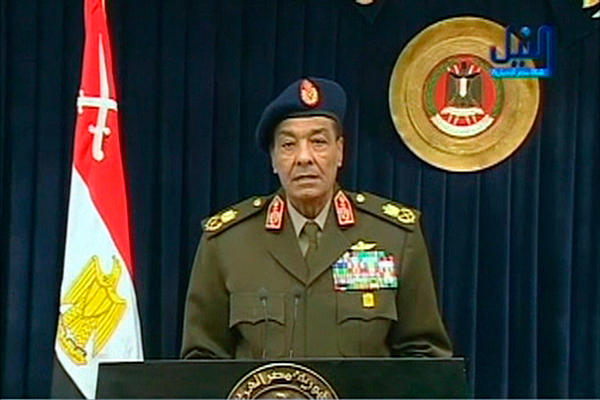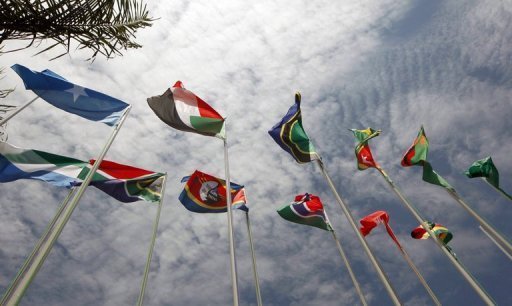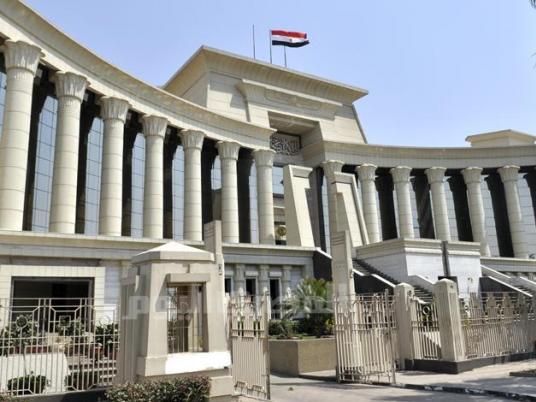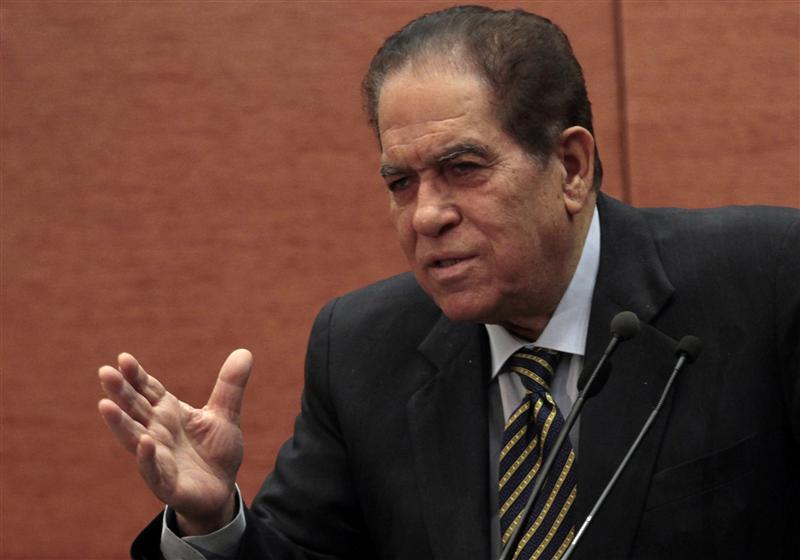
As millions of Egyptians were glued to their television screens to watch votes in the presidential runoff be counted, the Supreme Council of the Armed Forces issued a new decree broadening their jurisdiction, potentially giving them the upper hand regarding Egypt’s first constitution after Hosni Mubarak’s ouster and reinforcing assumptions about a full-fledged soft military coup.
On Sunday night, a new issue of the Official Gazette was published with a set of amendments that the SCAF had introduced to the interim constitution, known as the Constitutional Declaration.
These modifications grant the generals, Egypt’s de-facto rulers, absolute authority to run the affairs of the armed forces independently from the new president, who is expected to be sworn in by 30 June. In the meantime, the elected president can only decide to go to war with SCAF approval, according to the decree labeled “the Complementary Constitutional Declaration.” With SCAF approval, the president can also call on the armed forces to uphold to rule of law and security operations in the country alongside the police, if need be. The new decree also returns legislative powers to the generals after last week’s verdict by the Supreme Constitutional Court, which effectively dissolved the People’s Assembly.
The new decree is expected to widen the divide between the SCAF and the Muslim Brotherhood.
“This is an attempt to militarize the state and political life, and hamper the peaceful handover of power to civilians,” said Hatem Abdel Azim, a former lawmaker in the dissolved Parliament representing the Muslim Brotherhood’s Freedom and Justice Party. Abdel Azim’s party, which stood as the largest bloc in the dissolved parliament, still refuses to acknowledge the court verdict and insists that Parliament could only be dissolved by a public referendum.
The group holds that the generals have no right to reclaim legislative powers, which they held until January when the now-dissolved People’s Assembly was sworn in.
“The SCAF infringement on legislative powers is not acceptable, and this constitutional declaration is not acceptable,” Abdel Azim told Egypt Independent.
The new Constitutional Declaration is more of “a preemptive measure” to tighten the grip of the generals if the presidential race fails to bring to power a candidate who belongs to the military establishment, said Abdel Azim.
“They must have realized that [Mohamed] Morsy will win the presidential race,” added Abdel Azim. According to preliminary results, the Muslim Brotherhood’s Morsy has defeated his competitor Ahmed Shafiq, a former commander of Egypt’s air force and Hosni Mubarak’s last prime minister, by garnering almost 52 percent of the votes.
“SCAF puts itself in an authority higher than the president, and that is not heard of in any democratic system,” he added.
Besides the dissolution of Parliament, suspicions that a military coup was underway were aroused by a recent government decision granting military police and military intelligence personnel wider authorities to arrest civilians. Many observers expected that Shafiq’s ascent to the presidency would be the last episode of the generals’ reclaim of power. However, the count proved otherwise.
“Morsy’s victory, [that of] the revolution candidate, may change the balance of power and weaken the SCAF’s ability to proceed with the coup,” held Abdel Azim.
However, the new decree may assure the military junta more structural gains than just weakening the presidency. Sunday’s declaration also tightens the generals’ grip over the first post-Mubarak constitution. After months of Islamist-secular feuds over the makeup of the Constituent Assembly tasked with writing the constitution, the SCAF’s decree gives it the right to potentially appoint a new Constituent Assembly if the current one fails to complete its mandate.
Earlier this month, the dissolved Parliament elected a 100-member assembly amid allegations from secular forces that Islamists had secured themselves the lion’s share of seats. A lawsuit was filed with an administrative court to knock down the assembly, reviving memories of a similar case that effectively dissolved the first Islamist-dominated assembly in April on grounds of unconstitutionality.
Some legal experts hold that the second assembly may face the same fate as the first one.
Yet, having the military decide who will write the constitution is not welcomed by many.
“Any democrat or liberal cannot support the idea that the Constituent Assembly falls in the hands of the rulers, especially if these rulers come from the military,” said Ayman al-Sayyad, editor-in-chief of the monthly political magazine Weghat Nazar.
Sayyad contended that the constitution should be drafted by an elected body. “The rule is that elections are more democratic than appointments,” he added.
Under the decree, the generals, the president, the prime minister, the Supreme Judicial Council or one-fifth of the Constituent Assembly have the right to contest any clause issued by the constitution’s architects, if “it is in opposition to the goals of the revolution or its basic principles … or the common principles of Egypt’s past constitutions.” In this case, the assembly would have to revisit the contested clause or clauses within 15 days, and if contention holds, the Supreme Constitutional Court would have the final word.
“This is a huge flaw in the Constitutional Declaration,” said Sayyad about granting the court the right to rule over contentious clauses in the would-be constitution. “The Supreme Constitutional Court is in charge of determining the compatibility of laws with the constitution, but in that case, what constitution would it base its decisions on? There is no constitution.”
The court’s verdicts last week dissolving the parliament and upholding Shafiq’s bid for president have raised skepticism that the court might be collaborating with the generals. If true, Egypt might be headed towards the Turkish model, where a tacit agreement between the court and the military had allowed the latter to further their political and ideological interests by using the law against its adversaries.
Sayyad agrees with this reading. The empowerment of the SCC comes in light of attempts “to reproduce that model with all its details,” said Sayyad.
On a few occasions, SCAF members have unveiled their flirtation with how the Turkish model regulates civil military relations. “The reproduction of the Turkish model of Ataturk is very clear in all SCAF behaviors since March 2011,” said Sayyad. “It is a model where the military establishment will have a higher position than all branches of government.”
Several pundits held that Egypt’s military junta is attempting to mimic the Turkish model of the past when the generals had wide powers, rather than the current one, where elected civilians had managed to trim the wings of the military establishment.
Sayyad also dismissed the clause requiring the court to decide whether a constitutional article is in accordance with “the goals of the revolution or its basic principles, or the common principles of Egypt’s past constitutions” for its “vague” and “insignificant” wording.
“What past constitutions does it mean?” he wondered. “We had a constitution that said Egypt is a monarchy, another that said Egypt is part of the Ottoman Empire and another that said Egypt is a socialist state.”
The new decree had also modified an old clause stipulating that the president should be sworn in before Parliament. In light of the verdict nullifying Parliament, Mubarak’s first elected successor will take the oath before the constitutional court.
Tahani al-Gebali, a vice-president on the court, responded to the Muslim Brotherhood’s claims that the military has no right to issue any new constitutional declaration.
“The actual power is still in the hands of SCAF. The SCAF still holds the right to issue constitutional declarations. No party or organization has the right to refuse that,” she said.
She defended the new text, arguing, “It had filled a number of loopholes related to the relations between different branches of government until the new constitution is issued.”
Gebali denied that the decree infringes on the president’s authorities vis-à-vis the armed forces.
“The SCAF has maintained its right to run the armed forces until a new constitution is laid out. This is a matter of national security,” she said.
“The president should not have power over the armed forces, but should act as a partner with the SCAF [over military-related matters],” Gebali added.
In fact, the Complementary Constitutional Declaration did not challenge most of the president’s executive powers laid out in the 2011 Constitutional Declaration, such as his right to appoint a cabinet or relieve it of its duties, represent the state domestically and abroad, sign international treaties and agreements, promulgate and veto laws, accredit foreign political representatives and pardon or reduce punishment.
Regarding the council’s approval before a declaration of war, Gebali said the decision to wage war should not rest solely with the president.
Finally, Gebali hailed the stipulation that the Supreme Constitutional Court shall resolve differences over the new constitution as a “positive” step that many “advanced countries” had implemented, listing Germany and South Africa.
“A lot of countries provide their [high courts] the right to revise a new constitution or a constitutional amendment to ensure the organic consistency of the constitution,” she said.




